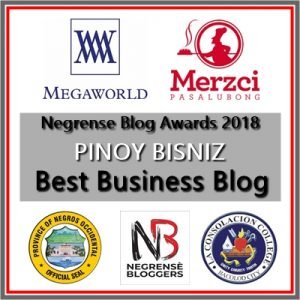Principles of Talent Management
Principles in Talent Management are necessary since these would serve as guiding posts for every course of actions to be done in the future. Without these, it would be in a way difficult for the people working under this team to align with the overall objectives and goals of the organization. After all, all organization is geared towards a common goal, and that is to make sure that all will work well in within the organization. What are these principles? Take a look at the list below.
1. Always align the costs
Workers come and go; this might be the perfect phrase to describe any organization. When people go, figure out if the vacant position needs to be replaced right away or there would be remediation that could be done. By doing so, you could make sure that the things that you do as per hiring would not result in the bloating of expenses. Will the needed job run for a long time or is it just something temporary? Could it delay the production of work? These are types of questions that you should consider.
2. Hold on to Talents and Skills Investment
Make sure that your workers are provided with opportunities to grow. As these people progress, there is also a higher chance for them to learn better and be equipped more regarding skills. So, make sure that you provide the workers with the needed tasks through professional advancement or development. Skills are equivalent to investment; the more workers are equipped with it, the more that they could be of significant contribution to the workforce.
3. No room for errors
Though there is no such thing as perfect, being at the talent management should as much as possible be an error-free discipline. Why? One mistake could lead to a lot of losses and financial setbacks. To do this, make sure that you come up with a series of well-crafted plans to implemented, both in the short-term and long-term aspects. If in case that there would be movements in the case of the workers, the team, as well as the entire organization, could adjust based on the prepared plan.
4. Balance the interests of your workers
Nothing is wrong with making sure that people could be enjoying while working. Nothing beats fun in the workplace! This way, workers will most probably stay at the organization since they can do what they are passionate about while working. Through this, there would be a long-term collaboration. The interests of workers could be sustained in such a way that they will feel motivated and encouraged to stay with the organization regardless of the possible stressors or possible pirating happening from other organizations.
By following these principles, I am sure that all will be aligned based on the goals and objectives of the organization. Through talent management, there would be the maximum utilization of resources without having to worry about the possible setbacks regarding finances and work productivity, all leading to a successful organization.















Investing in human resources is crucial to the company’s success. That is why, it should always be a top most priority of an organization. These four principles in talent management is a must-read of top-management and HR specialists.
In the operations point of view our workforce is changing. As what Randy Lewis the SVP of Supply Chain and Logistic at Wlgreens says that we need to focus more on principles and not rules.
In the article one of the principle that I want to follow as an HR practitioner is to Hold on to Talents and Invest on skills because both are required to make a company or any organization great as it can be.
In one of the article in 2014 about Procter & Gamble they invested English skills to their non english speaking employees. Since P&G is one of the global leader in consumer goods with global operations for more than 70 countries, English is the platform for communications so they invest on english skills through on site english training courses from small groups, one on one training with tutors and offsite training at language schools. With this they were able to build confidence on their employees and they were able to manage, negotiate and able to lead.
Brilliant article. No doubt, knowledge of talent management is important for any manager , we all know how difficult it is to manage people right
Balance of Interest of your Workers
This is very important principle that the employers should ponder on. As an employer, one of their tasks is to see and consider the welfare of their workers. They have to make sure that their workers are happy in the company where they work. This can only be achieved by the workers if they work on a lighter environment where they can utilize all their skills for the company and at the same time they can also they do their other passions without any hesitation at all. This principle would be a big help for every company to have a long-term collaboration with the employees. Through this, employees would become more passionate about their work and it would be difficult for them to leave the company because they are happy working in it. Plus, the benefits and just wage should be given to workers. These are the basic things that employers should be aware of.
For the employers also to develop a better relationship inside the workplace, they should conduct gatherings or occasions where employees are given appreciations and recognitions. Activities that would help workers develop their highest potentials are also encouraged. Showing their talents, and participating to different games with prizes as organized by the talent managers are effective strategies to make them feel that they are important inside a particular company. Aside from being appreciated and recognized, they would be able also to establish a good connection to their co-workers and to their employers as well.
Holding on talents and skills investment is crucial in today’s organization because employees are the best assets of the company. They would feel that they are valued if the company does something for them through way of investment in the particular employee. If talent and skill investment is wisely managed then it could boost up the performance of employees which provide additional revenues for the business especially if the employee is directly associated to sales.
These principles indeed shows how crucial the responsibility of Human Resource is. This reflects the additional functions to business community to evaluate its practices and adapt with the ever changing business world that will be beneficial to carryout talent management effectively and efficiently to reach the organizational goals.
I agree to the second concept which is to hold on to talents and skills investment. As an employee and a human resource practitioner, I have proven that when employees are valued by the company through the opportunities that will let them grow and employee empowerment. This could be through promotions and trainings. They will be more motivated and perform better. This builds loyalty and creates a highly motivated individuals.
Always align the costs. I agree with the articles’ introduction that ‘Workers come and go’ and we all know that it is inevitable in any workplace. Whether you are an established organization already or just starting in the business, you will always have transitions in the workforce. When this happens, it is an opportunity for new talents to be discovered but HR people should first re-asses the line-up for vacant positions.
It is the responsibility of HR managers to make sure that all positions are equipped with the right people to do the job. This is where assessment of manpower should come in. There would be instances that when one position opens in one department of the company, the person who left this position is no longer needed or is not anymore functional. HR managers should know which department should require a new hire that would function and would be beneficial for the company. These considerations should be in mind when hiring manpower. As Personnel Managers we should always consider also the monetary aspect of the company because if we just hire and hire people, which services are no longer, we are just wasting the resources of the company which could also result in the company’s losses in the future.
HR manager should assess his manpower and place the right people in respective positions with appropriate benefits that could motivate them to work for the company and be an asset as well.
Principle 1. Always Align the Costs
When people come and go is mentioned it came to my understanding that yes, it may result to additional costs to the organization and it may also cause delay to production of work. Considering the competition in the business world, they need people; they need talents to a point that businesses will pay more than the regular just to hire talented employees. Then it bring option/s to other employees to transfer from one company to another. Now, once you lose an employee, you get to invest again in hiring, training and developing the once just got hired. Instead of you focusing in increasing your production which was actually affected already, you are still in the process of growing and developing your new talents. Why people leave after all the preparations done? Then that’s identically to be answer by the organization.
Hold on to Talents and Skills Investment. The best investment of a company is its people. Career plans must be in line with the business plans. If a department is into customer service, talent managers will focus on training employees into customer service as well. Support or make use of talents and resources available. Know more about the latest trends in skills and qualification demands in a competitive market situation. The Human Resource
department should consistently practice developmental and succession plans to retain employees and develop talents. Smart employers invest in their people’s professional development to open opportunities for them to grow. They invest in short and long-term goals like continuing education, conferences, training, and other events. Employees will be motivated and service quality will improve. Highly skilled workforce manifest business productivity. Small and big companies need to invest in talents of their employees not only to boost the company’s
reputation for having the most qualified and efficient workforce but the whole society can benefit as well.
Among the four (4) Principles of Talent Management (that was stated in this article), I like to emphasize the end one : Hold on to talents and skills imvestment.
I always believed that once HR hires someone, he/she has the goal to keep or retain that employee. In order to retain an employee, the company must see too it that that employee is growing professionally and personally. Employees must be provided with the chance to level up both technically and behaviorally (technical and soft skills).
Investing in employees help companies promote from within. Promoting from within helps the company save a lot of costs and more importantly, it provides the company a more inspired, motivated and skillful employee.
Hold on to talent and skills investment is one principle that we should looked into in a company. Culture plays a great role since it is diverse in every country, even the Philippines, is composed of varied cultures, much more in every company having different talents
and skills.
Integrating talent and skills is an investment as well as assets of the company.
Talent and skills must be embedded in hiring, leadership development activities, performance management and compensation and benefits program to ensure the right people on the right job.
Talent and skills as a means of key selection criteria will help in the assessment of candidates personality and values compatibility to predict future performance and. retention. The civil service commission as implementing body in the government, believes that past behavior predicts future performance, as well as skills are better and easier to develop than personality traits, attitude and values.
Many companies now, including government agencies subscribes to a strong values based approach radiated on their talent and skills, as well as Integrating in their work the company’s philosophy, values, mission and vision
My overriding chosen principle would be to hold on to talents and skill investment! While the other principles are important and useful to have they would not assure the survival and expansion of the company for years to come! To hold on to talent is to hold on to the base that made the company successful in the past and present but nurturing them and empowering the best. HR must be on the pulse of every staff and discover the future stars, make sure they feel recognized and valued, at the same time rooting out the troublemakers, the shirkers, the idlers and lazy ones, put pressure on them so they leave or start making errors or behave in ways incompatible with company policy that can allow the company to dismiss them. Rooting out the chaff from the seed is the first step to have a stable and productive workforce, then finding the stars, the gems and taking good care of them in a way that they feel there are a career and future for them in the company!
It is vital to see which one would be better and more productive in another role or which one is management material! Giving these outside courses on self-improvement and management course will also bind them more to the company and will decrease the chance they leave for a competitor!
This brings me to invest in skills. It is actually investing in the future. Skills need to be nurtured when they are present, taught when they are not and brought in from the outside when a dearth is foreseen! Training, retraining, offering outside courses and seminars is the best way to keep the workforce up to date on necessary skill and knowledge. Continued outside sourcing of talent is also necessary. This search should never stop even when staffing is complete because changes can happen very quickly and affect the company badly. HR should always be ready for mass defections as sometimes a manager poached by a competitor may try to take a whole team to the new employer. When notices are given, there is only a very short window to find a replacement with the necessary skill. HR should always plan for the best but prepare for the worst!
In every company a survey is being granted to each employees and talents to affirm the performance of a business towards to its employees. Talents are the front liners in a business. Management of talents are an ever challenging tasks thus it could impart new learning and developments. An accurate methodology in talent management is very important both in talent acquisition and in the management perse’. Perhaps others may think talent could be replaceable but it isn’t easy to find the most ideal one for a certain field.
I choose article 2 state thay hold on to talents and skills investments;as studying Human Resource Management and also as currently working as Hr. staff, the organization must need to understand the standard needa of the employees to have the opportunity to grow and develop, invest a lot and take a risk those who are talented person and have a good skills because they are the one who will help the organization to emerged in to successful organization. And employees have the right to learn new things, to be equipped through the opportunities they will get from an organization. Therefore if the employees have become fully equipped they will become affective and efficient worker in the organization.
Invest in People!
This sounds cliche’ but it is vital for every business to invest in its manpower knowing that it is the human resources who will carry out the plans and strategies of the company. Human assets are as important as the physical assets of the business.
Based on this article, it is imperative that businesses must hold on to talents and skills development. Human assets are the only assets that can neither be copied nor imitated. Professional and personal development are needed to make employees feel that they are valued by the organization. Even if we recall Maslow Hierarchy of Needs, it is very clear that employees have esteem and self-actualization needs. Aside from receiving competitive compensation package and conducive working environment, they also need to be developed to their full potential. Investing into human resources is expensive, this may include sending them into formal education such as masters and doctorate degrees or sending them to seminars and conventions that will improve their competencies. Aside from the expenses, it may also a bit risky for the company to invest in people because they might leave the workplace anytime. But again, it is for the company to consider, they need to measure the cost and benefit of investing to their people. Nevertheless, skills investment is not an option, it is a must.
One concrete example of a company I know that invests into its people talent and skills development is a school. In fact, there is an intended budget for faculty development. Faculty are sent to seminars and conventions to further enhance their skills. Also, the said school offer assistance to their faculty pursuing graduate studies.
Employees are the lifeblood of the business, having competitive ones is an edge. Developing employees skills and talent will be beneficial in the long run, there will be return on investment and hopefully even higher revenue. Employees are the most expensive asset the organization can have and having the most skilled and talented people will surely make a business a cut above the rest.
One of the Principles of Talent Management that has caught my attention is Principle No. 2. Hold on to Talents and Skills Investment. I believe that an employee can be either an asset or a liability to a company. While the company would want each and every work force to be an asset , this does not come naturally though. Personal development or skill enhancement is a partnership endeavor between the talent manager and the talent. Both should work together to equip the talent with the skills needed to achieve the goal of the company and to allow the worker to grow his or acquire new skills. Once this is achieved, the company can be confident that it has turned its employees into an asset, gaining from their skills and talents and also making sure that these assets remain in the institution.
Image what it will take to hire a new one if we do not hold on to our talents and invests in their skills. Talent managers will have to go back to square one, if a newbie comes in, in replacement to a skilled worker. A skilled talent would be more effective and efficient as compared to an untrained worker. Productivity of the company will be affected in this case. Thus, it is an important principle to bare in mind when it comes to talent management, to hold on to talents and skills investment. Guided by this principle, along with the other principles, one can be a good if not better talent manager.